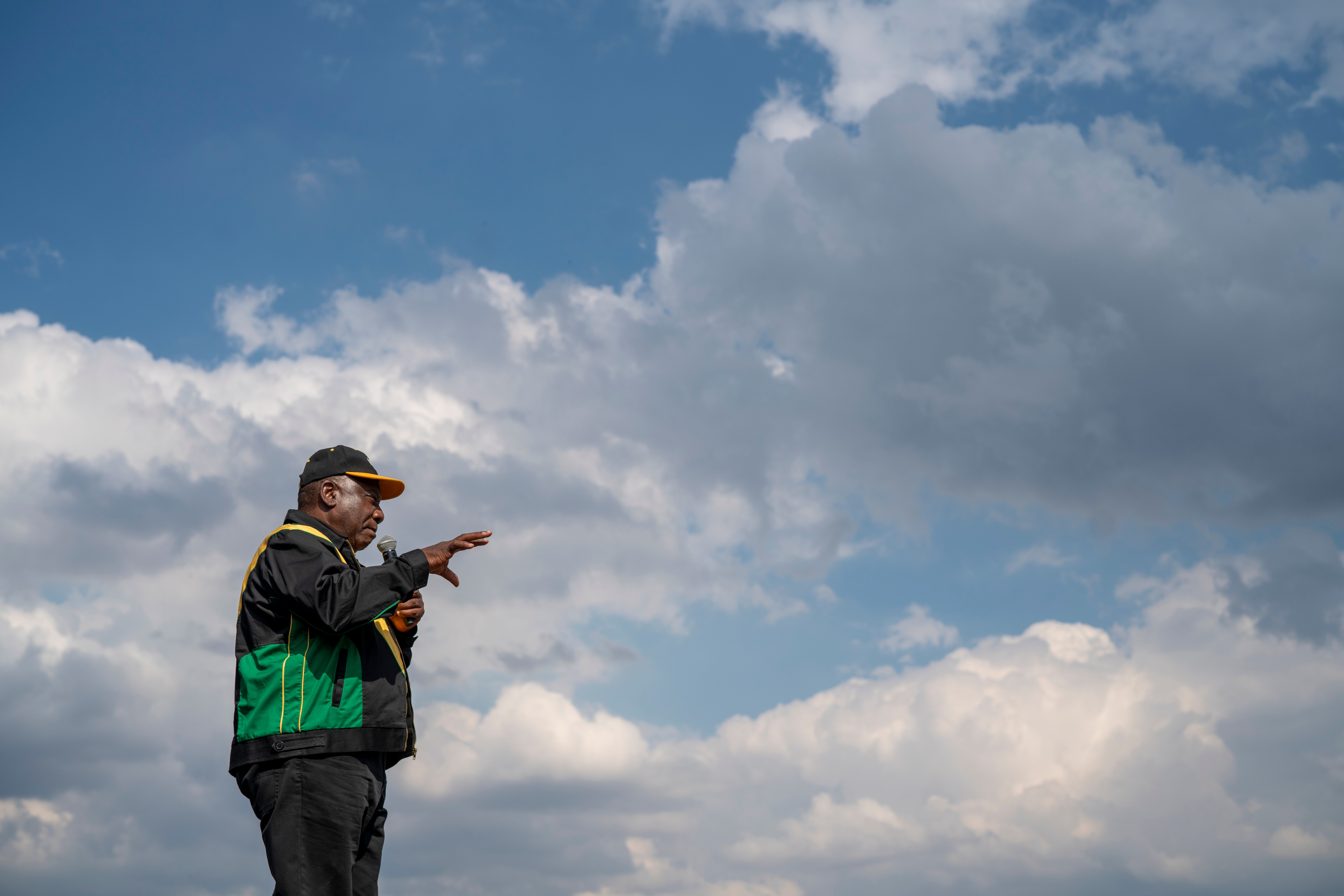South Africa's power cuts a key issue in local elections
As South Africa heads to crucial local elections, the country has been hit by a series of crippling power blackouts that many critics say highlight poor governance

Your support helps us to tell the story
From reproductive rights to climate change to Big Tech, The Independent is on the ground when the story is developing. Whether it's investigating the financials of Elon Musk's pro-Trump PAC or producing our latest documentary, 'The A Word', which shines a light on the American women fighting for reproductive rights, we know how important it is to parse out the facts from the messaging.
At such a critical moment in US history, we need reporters on the ground. Your donation allows us to keep sending journalists to speak to both sides of the story.
The Independent is trusted by Americans across the entire political spectrum. And unlike many other quality news outlets, we choose not to lock Americans out of our reporting and analysis with paywalls. We believe quality journalism should be available to everyone, paid for by those who can afford it.
Your support makes all the difference.As South Africa heads into crucial local elections Monday, the country has been hit by a series of crippling power blackouts that many critics say highlight poor governance.
With South African residents and businesses struggling to cope with cuts in electricity for up to six hours a day, the government’s failure to provide a stable power supply is a burning election issue. The country’s state-owned power utility Eskom, which provides about 90% of South Africa’s electricity, has for years been marred by allegations of mismanagement and corruption.
“The majority of households just want to open a tap and get water, turn a switch and see lights," Shenilla Mohamed, executive director of Amnesty International South Africa, told The Associated Press. "They don’t want to go outside their door and see sewage. They don’t want their children to be sick. These are basic human rights that they want to be upheld.”
The local government elections, which take place every five years, determine who will be on the councils that run the country’s cities, including holding responsibility for delivering basic services like water, waste management and sanitation. The councilors will elect city mayors.
The rise this year of independent candidates going up against the ruling party, the African National Congress, and other major parties is a sign that many South Africans are looking for alternatives, Mohamed said.
“People are just tired of the same rhetoric from the same parties over and over again. The emergence of independent candidates shows how disillusioned people are with the existing parties," she said. "They are looking for hope and leaders who will make their lives better.”
Eskom announced that no blackouts will take place on election day, Monday, which has been declared a national holiday to encourage a good turnout at the polls.
President Cyril Ramaphosa s government has announced plans to increase power generation capacity through renewable energy projects from independent power producers, but these are far from being implemented.
The local elections in 2016 saw major political shifts, with the ruling ANC losing control of Johannesburg the country's largest city and economic hub; the Tshwane metropolitan area that includes the capital city of Pretoria; and the Nelson Mandela Bay metropolitan area that includes Gqeberha (formerly Port Elizabeth).
The main opposition party, the Democratic Alliance governs Cape Town and has formed coalitions with smaller parties to run Johannesburg, Tshwane and Nelson Mandela Bay.
The leftist Economic Freedom Fighters led by Julius Malema is campaigning by strongly criticizing the ANC government for not delivering adequate services to South Africa's Black majority.
Campaigning has been lively in Cape Town, where former mayor Patricia de Lille is taking on the Democratic Alliance with her Good party. Posters of de Lille in boxing gloves say she will fight for good government in Cape Town and the Western Cape province.
Another party is the Cape Independence Party, which is advocating “Capexit,” the independence of the Western Cape and Northern Cape provinces from South Africa.
Also in Cape Town, former news anchorman Eben Jansen is a candidate for the Dagga (Marijuana) party. Jansen, now a marijuana farmer, said he wants to become Cape Town's mayor and make the city South Africa's marijuana capital.
___
Meldrum reported from Cape Town.